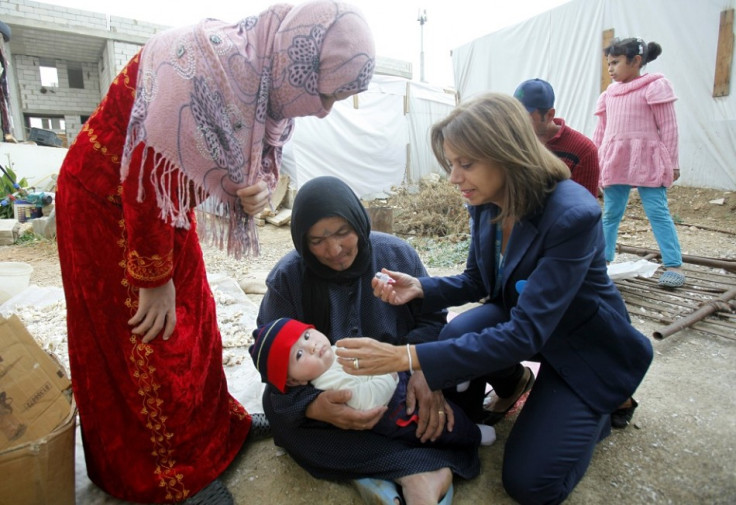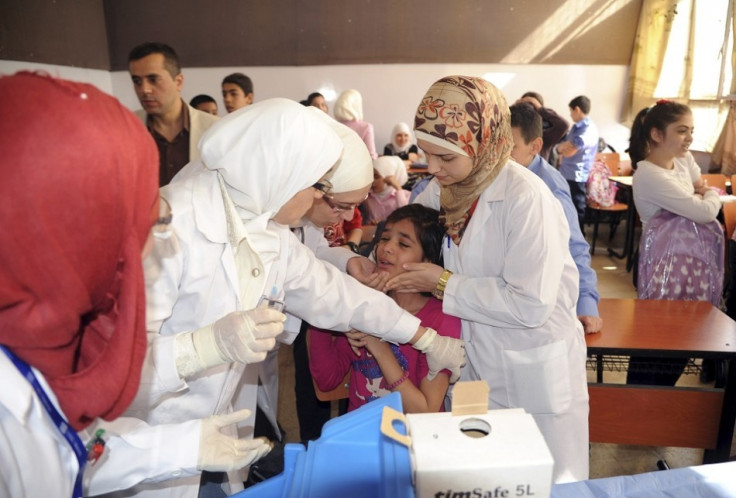Syria Polio Outbreak: 13 Cases Confirmed as Origin of Disease Identified as Pakistan

Thirteen cases of polio have been confirmed in Syria, with most of the victims under the age of two years old.
The World Health Organisation confirmed another three cases of the disease have been established through laboratory testing in the Syrian Arab Republic.
WHO announced 10 cases of Wild poliovirus type 1 had been detected among a "cluster of 22 acute flaccid paralysis cases in Syria" last month.
Acute flaccid paralysis is one of the most obvious symptoms of polio and is characterised by weakness or paralysis.
WHO analysed the 13 cases confirmed in Syria and found the genetic sequence is most closely linked to a virus found in Egypt in December last year. The Egyptian virus had been linked to a wild poliovirus circulating in Pakistan.
"Closely related wild poliovirus strains have also been detected in environmental samples in Israel, West Bank and Gaza Strip since February 2013. Wild poliovirus had not been detected in the Syrian Arab Republic since 1999," WHO said.
Since the civil war began in March 2011, over 100,000 people have been killed and over a third of the country's public hospitals have been destroyed. Almost three quarters of health workers are believed to have fled in some areas.
WHO said the war is to blame for the polio outbreak, with immunisation rates falling from 91% to 68% in just two years.

"Implementation of a supplementary immunisation campaign in Deir Al Zour province commenced promptly when the first "hot" acute flaccid paralysis cases were reported. Larger-scale outbreak response across the Syrian Arab Republic and neighbouring countries will continue for at least six to eight months depending on the area and based on the evolving situation," WHO said.
"Given the current situation in the Syrian Arab Republic, frequent population movements across the region and the immunization level in key areas, the risk of further international spread of wild poliovirus type 1 across the region is considered to be high.
"A surveillance alert has been issued for the region to actively search for additional potential cases."
Two experts, writing for the Lancet, have also warned the polio outbreak could spread into Europe because of refugees fleeing the war-torn country.
Martin Eichner and Stefan O'Brockmann wrote: "Hundreds of thousands of people are fleeing Syria and seek refuge in neighbouring countries and Europe. Because only one in 200 unvaccinated individuals infected with [polio] will develop acute flaccid paralysis, infected individuals can spread the virus unrecognised.
"It might take ... nearly one year of silent transmission before one acute flaccid paralysis case is identified and an outbreak is detected, although hundreds of individuals would carry the infection," they wrote.
"Vaccinating only Syrian refugees must be judged as insufficient; more comprehensive measures should be taken into consideration.
© Copyright IBTimes 2025. All rights reserved.






















